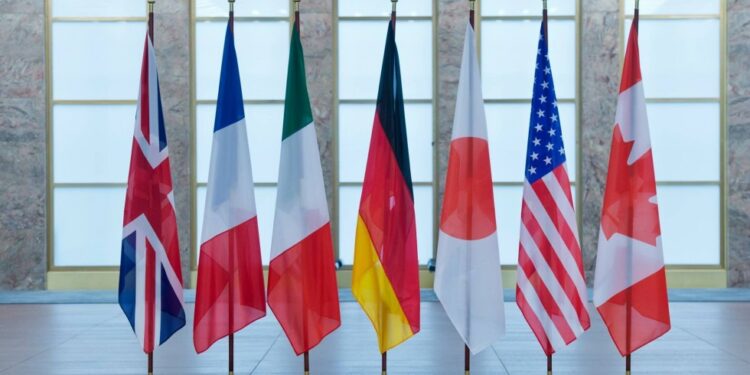Advertisement
Finance ministers from the Group of Seven major developed economies (G-7) are set to call for faster global cryptocurrency regulation following the collapse of the terra USD stablecoin last week, according to Reuters.
"In light of the recent turmoil in the cryptocurrency asset market, the G7 calls on the FSB (Financial Stability Commission) to promote rapid development and the implementation of consistent and comprehensive regulations."
The G7 comprises the world's seven largest advanced industrial economies: Canada, France, Germany, Italy, Japan, the United Kingdom and the United States. The FSB is an international body based in Basel that has been responsible for creating financial standards since 2008. The FSB has previously promised a report on global stablecoin regulation and monitoring for October this year. The head of the FSB, Klaas Knot, has volunteered to write a book of cryptocurrency rules covering issues of financial stability and investor protection.

However, the draft comes after the most recent incident in the cryptocurrency industry, which was triggered largely by LUNA's TerraUSD stablecoin (UST) on May 8, when the UST first lost peg against the USD. When the UST stablecoin slipped out of the $1 price level, luna foundation guard made every effort to save the UST, most seriously discharging $3 billion of BTC into the market, exacerbating the sell-off on the general situation. This has increased the call for additional regulations.
In a speech released Monday in Paris, French central bank governor François Villeroy de Galhau cited the recent market turmoil as evidence that stablecoins are "misnamed" and "can be very unstable." crypto assets need to be monitored and interacted between jurisdictions to avoid disrupting the international financial system, he said.

The European Union's commissioner for financial services, Mairead McGuinness, in the process of finalizing the European Union's cryptocurrency law known as MiCA, has also called for a global agreement on cryptocurrencies to protect investors and limit the impact of the bitcoin-style working technology environment.
















